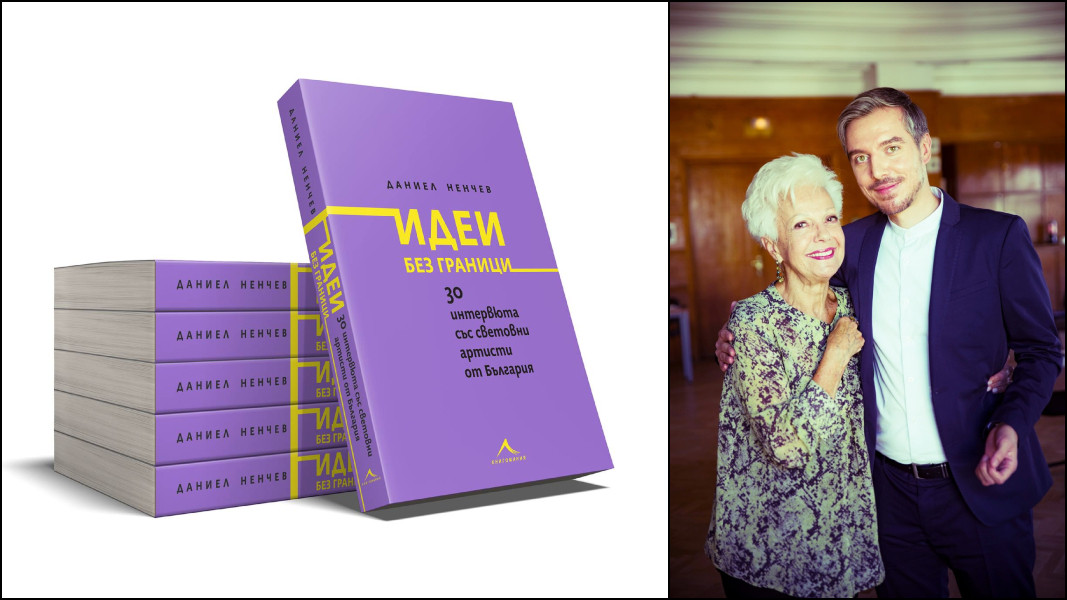Today, Bulgaria celebrates its National Day of Liberation - March 3. It is 145 years since Bulgaria's Liberation from Ottoman rule and the return of Bulgaria on the European political map. The good news is that these days Bulgaria is everywhere in the world, journalist Daniel Nenchev tells us. Because Bulgaria is where there is even one person who carries it in his heart and mind. Today's holiday brings the spirit of another liberation - the one from the communist regime in the country. March 3 was declared a National Holiday by the National Assembly of the Republic of Bulgaria in 1990. And more than 30 years later, in full-fledged European Bulgaria, we must find the courage to admit that liberation does not always mean freedom.
"Perhaps freedom is, above all, the lack of fear of being able to say and feel what you are," Bulgarian opera diva Raina Kabaivanska shared in a frank interview with Daniel Nenchev in 2019. This conversation with the outstanding soprano is included in Daniel Nenchev's book "Ideas without Borders" and builds an inspiring and free picture of 30 interviews with world-renowned artists from Bulgaria that the journalist took in the last 15 years.

The artists who use their Bulgarian identity as a fuel for their success, not a brake on their lives. Even the Bulgarian language can unite people, regardless of where they are, says Daniel. And he mentions Georgi Gospodinov again as an example of someone who writes about Bulgarian reality, about the Bulgarian transition, about the narratives that make sense of our life here. But they are also a universal language for connecting with people through translations. It is much easier with music - with the voices of Alexandrina Pendatchanska, Raina Kabaivanska or Vasko Vasilev, Theodosii Spassov or the visual means of cinema and animation created by Theodore Ushev. And of course, the freest and largest person among the Bulgarian artists with "ideas without borders" for the journalist is Christo Vladimirov Javacheff-Christo.

Christo, along with many Bulgarian artists who built their lives abroad before 1989, do not run away from Bulgaria, from their homeland, from their family and friends. He fleed the totalitarian system, the non-freedom, the ideas with limits. Freedom is a personal experience, says Nenchev:
"And as a society, even if we don't value freedom, we live in a free world today. Europe is a free space with freedom of speech, freedom of movement, freedom of association and identity. We are respected for being Bulgarians. This is the motto of the European Union - Unity in diversity. We are united by values such as freedom, peace, tolerance, life, and I say all this against the backdrop of the war that is currently happening on the Old Continent. The people who started this war obviously believe in other, opposite values. And we have to be aware of that. Everything we are today is a function of that freedom once dreamed of by the brightest personalities in our history. We are living that dream.”
The 51 st Sofia International Book Fair opens today at the National Palace of Culture in Sofia. The forum, which will be on until 15 December, is organized by the Bulgarian Book association. 160 publishing houses are taking part in the forum..
"Through his plays, Jean-Pierre Martinez strives to restore the prestige of comedy as a mirror held out to society" - the playwright's website states. Martinez is the author of 101 comedies performed all over the world, which are studied in French schools..
Bulgarian writer Georgi Gospodinov is one of twelve writers from around the world invited to become international members of the British Royal Society of Literature, the organisation announced on its website . The writers were selected by a committee..
The latest project by director Stefan Komandarev, "The Block Universe", is one of the 35 selected projects at the most important global forum for film..
The truth is a blessing for those who are ready to go to the end. These words belong to author and screenwriter Svoboda Bachvarova, whose 100th birthday..
The latest Bulgarian film "Before I Forget" can be seen in cinemas from today. It depicts the sad reality of one of the most common modern diseases -..

+359 2 9336 661
